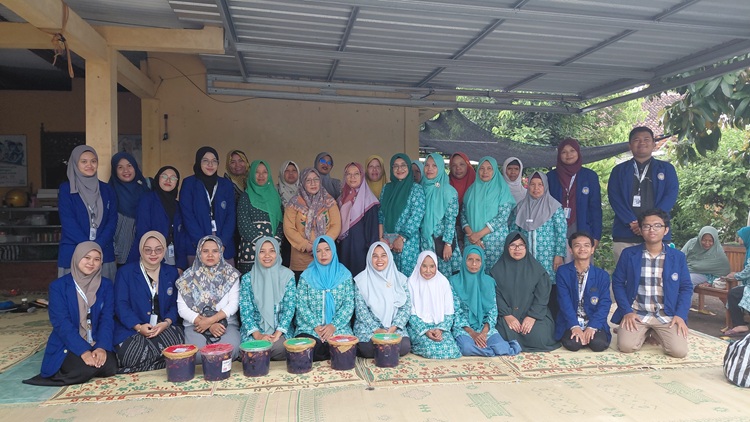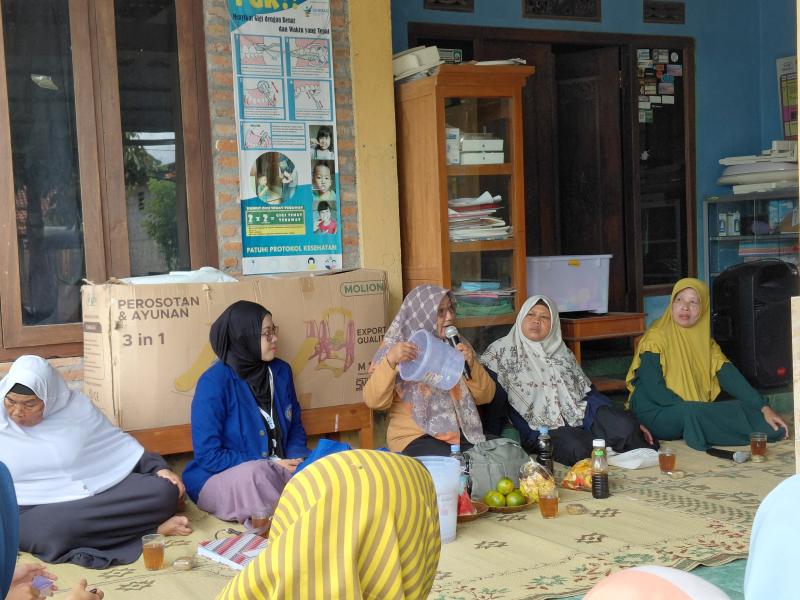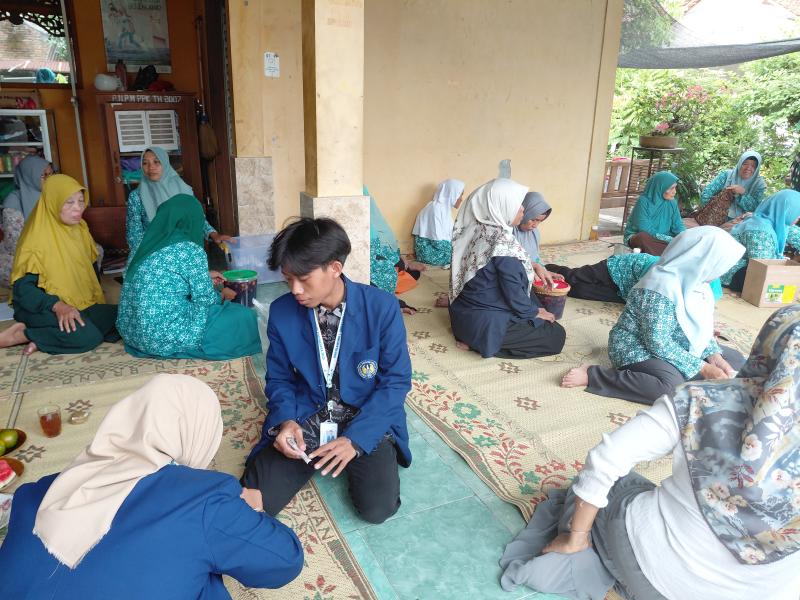You are here
UNY Students Introduce Eco-Enzyme Making to Empower Women in Waste Management

Ten students from Universitas Negeri Yogyakarta (UNY) participating in the Independent Community Service Program (KKN Mandiri) at Blawong 1, Trimulyo, Jetis, Bantul, organized a workshop on eco-enzyme production with local PKK women. The initiative aimed to address the pressing issue of organic waste management in the area.
The KKN team, led by Eko Putro Tri Hartanto, an undergraduate student from Accounting Education, Faculty of Economics and Business (FEB UNY), consisted of Muhammad Ali Ghufron, Thoriq Ahmad Zaidan, Angger Rangga, Syalaisha Alifia, Chela Junita, Isma Salsabila, Friska Aulia, Raissa Dian, and Fikri Zahra. The event took place in the courtyard of the Blawong 1 hamlet head’s residence, attended by around 60 members of the PKK women’s group, and officially opened by Ms. Dwi Rahayu, the Head of Blawong 1 Hamlet.
In her opening remarks, Ms. Dwi Rahayu expressed appreciation for the students’ initiative, stating that the program helped raise community awareness about turning household waste into something useful. “We’re grateful for this activity—it provides real solutions for our waste problems and motivates residents to take part in environmental preservation,” she said.
The workshop featured Ms. Tsalis Siswanti, Chair of the Eco-Enzyme Community of Bantul and a member of Eco-Enzyme Nusantara, who provided a detailed explanation about the concept, benefits, ingredients, and fermentation process of eco-enzymes. She guided participants through the dos and don’ts of the process, answering practical questions such as how to proceed when only limited organic materials are available. “If you only have three types of fruit or vegetable peels, that’s fine—just don’t seal the container tightly until it meets the proper mixture. You can leave it open for up to one week,” she advised.
According to Eko Putro Tri Hartanto, the KKN group initially planned to create biopores, but limited open land and concrete-covered yards made it impractical. “We observed that organic waste is a major problem here, but most homes lack soil areas for biopores. That’s why we decided to introduce eco-enzymes as an alternative solution,” he explained. The participants, divided into six groups, enthusiastically followed the practical session, guided directly by Ms. Tsalis. Many captured photos and videos to document the activity and share them on social media.
This collaboration between UNY students and the Blawong 1 community supports the local government’s “Bantul Waste-Free 2025” program, fostering environmental awareness through small yet impactful actions. The activity also contributes to several Sustainable Development Goals (SDGs), particularly SDG 11 (Sustainable Cities and Communities), SDG 12 (Responsible Consumption and Production), and SDG 17 (Partnerships for the Goals) by promoting responsible waste management, sustainable community engagement, and cross-sector collaboration for environmental sustainability.
-Syalaisha Alifia Jauhari

Faculties, Graduate School, and Directorates
- Faculty of Education and Psychology
- Faculty of Engineering
- Faculty of Mathematics and Natural Sciences
- Faculty of Languages, Arts, and Cultures
- Faculty of Social Sciences, Law, and Political Science
- Faculty of Health and Sports Science
- Faculty of Vocational
- Graduate School
- Directorate of Quality Assurance
- Directorate of Researches and Community Services
Contact Us
Copyright © 2026,


